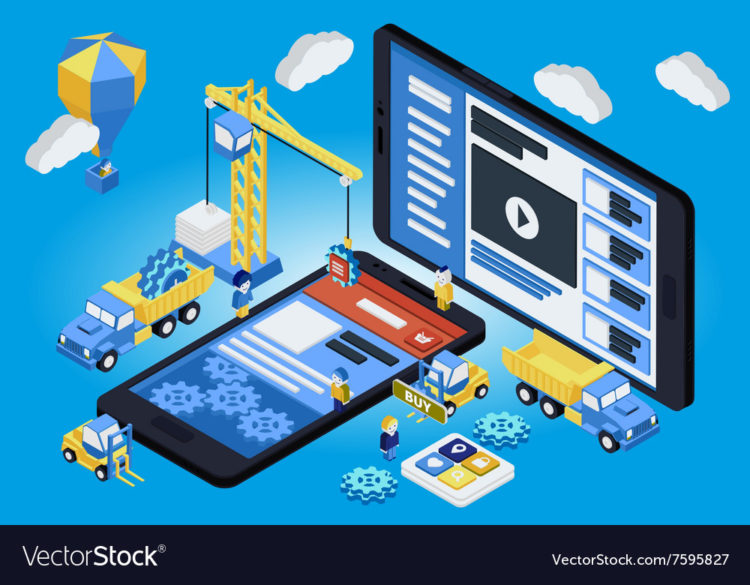AI Software Developer Shaping the Future of Technology

By
When we talk about World War II, we often focus on the battles, the strategies, and the people who fought them. But beneath the surface, one of the most decisive factors in the outcome of the war was something less visible but equally powerful: technology.
The Germans weren’t technologically backwards-not at all. In fact, they led several breakthroughs. They launched the world’s first operational jet fighter, the Messerschmitt Me 262. They developed the V-2 rocket, the first long-range guided ballistic missile. And they used the infamous Enigma machine to encrypt military communications.
But even with these innovations, Germany couldn’t turn the tide of the war in their favor. Why? Because technological superiority isn’t just about one or two groundbreaking inventions. It’s about scale, adaptability, and data-driven decision-making. And that’s where the Allies-especially the United States-pulled far ahead.
Let’s take a closer look at what the Germans had, what they lacked, and how a much more dramatic leap in technology-something that parallels modern artificial intelligence-might have changed everything.
Where Germany Led – and Where They Fell Behind
Germany started the war with a technological edge in several areas. Their tanks, like the Panzer IV and later the Tiger I, were considered more advanced than those of the Allies. Their U-boats wreaked havoc in the Atlantic. And their scientists were among the best in the world.
The Allies, led by American industrial might and British ingenuity, rapidly caught up. They mass-produced aircraft, ships, and tanks at a speed that Germany simply couldn’t match. More importantly, they invested in technologies that helped them make better decisions, faster.
Think about radar. While the Germans had it, the British used it more effectively, integrating it into their air defense system. Then there was codebreaking – the Allied cracking of Enigma at Bletchley Park gave them a crucial edge in intercepting and understanding German military plans.
What Kind of Leap Could Have Changed the Game?
To truly overcome the Allied advantage, Germany would’ve needed something far beyond rockets and jet engines. They would’ve needed systems that could automate data analysis, optimize logistics, simulate outcomes, and predict enemy actions.
In short, they would’ve needed something like artificial intelligence.
Now, imagine if German commanders had access to a system that could:
Predict Allied movements by analyzing patterns in intercepted communications.
Optimize fuel, troop, and equipment distribution based on battlefield data.
Improve aircraft targeting using vision-based recognition systems.
Help scientists simulate nuclear reactions to accelerate atomic bomb development.
This may sound futuristic in a 1940s context-but today, that’s exactly the kind of work that a modern AI software developer does.
What Does an AI Software Developer Do-and How Is It Relevant Here?
Anai software developerbuilds systems that can think, learn, and adapt. These systems don’t just follow instructions; they evolve based on data. Whether it’s a chatbot that learns from customer queries or a computer vision model identifying threats in real-time, AI developers are creating the very tools that could have drastically changed warfare if they existed 80 years ago.
If Germany had access to a team of AI developers (as we do today), they could have:
Developed better encryption-and more importantly, anti-encryption tools.
Built simulation tools for faster R&D in weaponry and logistics.
Created predictive maintenance systems for aircraft and tanks to reduce breakdowns.
Deployed early versions of autonomous decision systems for battlefield analysis.
This kind of tech, even in primitive form, would have been a massive leap, potentially shifting the balance in their favor-at least temporarily.
The Human Side of Tech Advancement
It’s easy to get caught up in what-ifs and hypotheticals. But what this thought experiment teaches us is just how far technology has come-and how powerful it is when used correctly.
Today’s AI-powered systems are doing things people once thought impossible. Doctors are diagnosing diseases with machine learning. Cars are driving themselves. And businesses are using AI to streamline everything from inventory management to personalized marketing.
Behind these advancements is the human mind, specifically those of AI developers who are turning ideas into reality. While we no longer fight wars the way we did in the 1940s, we do face battles of a different kind-economic competition, data privacy concerns, and the race to innovate. And the ones leading the charge are modern-day technologists.
Hiring an experienced AI software developer today means you’re not just adding someone to your tech team. You’re equipping your organization with the tools to adapt, automate, and compete in a world driven by data and speed.
Lessons from History
If World War II teaches us anything, it’s that technology alone doesn’t win the war-it’s how you use it.
Germany had brilliant minds like Wernher von Braun (who later helped the U.S. get to the moon) and formidable weapons, but lacked the systems thinking and data-driven infrastructure that the Allies developed.
In today’s world, these principles still apply. Businesses, governments, and organizations that integrate AI into their strategy early and effectively will outpace the rest.
So whether you’re developing a healthcare platform, optimizing your logistics pipeline, or looking to build the next big app-remember: the edge lies in intelligence, automation, and speed. And those are exactly the outcomes that a skilled AI developer can bring to your project.
Technology has always been a decisive force in human history. And as we saw during World War II, having advanced tools isn’t enough-you need the right people to build and use them wisely.
Today, we have the opportunity to leverage the kind of intelligence systems that could’ve changed the course of entire wars. Thankfully, we’re using them not for destruction but for progress-healing patients faster, connecting people globally, and creating smarter businesses.
If you’re building something that requires true innovation and automation, consider bringing in an expert AI software developer. Because the real leap forward in technology isn’t just about machines-it’s about the minds shaping them.
sooperarticles.com







No Comment